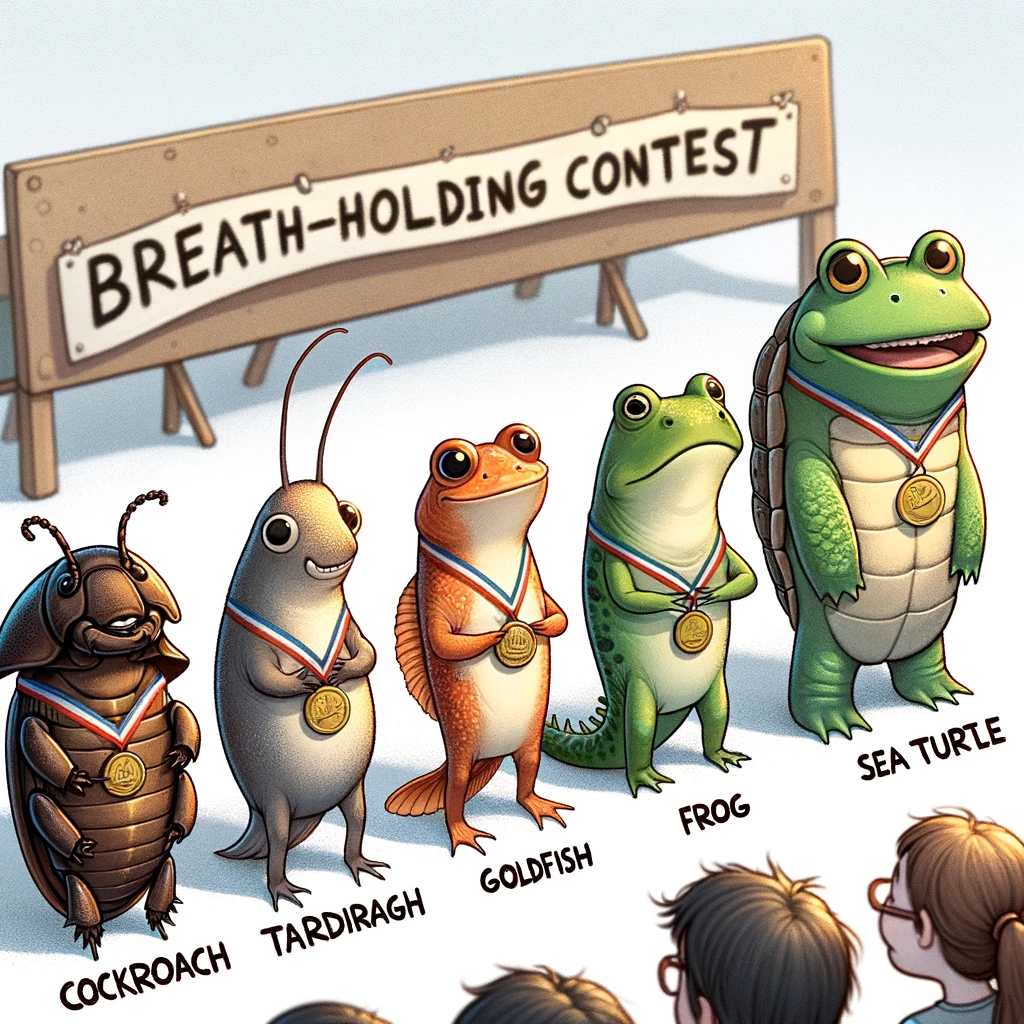How Long Can a Cockroach Live Without Air?
 How Long Can a Cockroach Live Without Air?
How Long Can a Cockroach Live Without Air?
In the realm of urban legends and scientific marvels, the cockroach stands out for its incredible survival abilities. Among these, the cockroach’s capacity to survive without air for extended periods sparks both awe and curiosity. This post delves into the fascinating biology behind this resilience and what it means for the infamous pest’s survival in harsh conditions.
The Resilience of Cockroaches
Cockroaches are among the most ancient insects on Earth, having adapted to survive in a wide range of environments over millions of years. This adaptability includes an extraordinary tolerance for various extreme conditions, including a lack of oxygen.
Survival Without Air
Research has shown that cockroaches can survive without air for up to 40 minutes and recover fully once oxygen is reintroduced. This capability is far beyond that of humans and most other terrestrial life forms, making cockroaches particularly hardy survivors in environments where other creatures would quickly perish.
| Animal | Time Without Air |
|---|---|
| Cockroach | Up to 40 minutes |
| Tardigrade | More than 10 years in a dehydrated state |
| Goldfish | Several days under ice |
| Frog | Up to several hours |
| Sea Turtle | 4-7 hours underwater |
How Do They Do It?
Cockroaches have a highly efficient system for regulating oxygen and carbon dioxide levels, allowing them to shut down their metabolic processes and reduce their need for oxygen significantly. This system, coupled with their open circulatory system and the ability to absorb oxygen through their body segments, enables cockroaches to survive in low-oxygen environments.
Implications for Pest Control
The cockroach’s ability to survive without air poses challenges for pest control methods that rely on suffocation or fumigation. Understanding the biological resilience of cockroaches can help in developing more effective strategies to manage infestations, emphasizing the need for comprehensive approaches that address the cockroach’s various survival tactics.
Conclusion
The cockroach’s ability to live without air is just one of many testaments to its incredible resilience and adaptability. While often maligned as pests, cockroaches offer valuable insights into survival mechanisms and the potential for life to thrive in extreme conditions. However, when it comes to managing cockroach populations in human habitats, this resilience underscores the importance of employing strategic and effective pest control measures.
- The Life Span of a Cockroach
- Do Cockroaches Eat Clothes?
- Do Cockroaches Have Teeth?
- Shrimps and Cockroaches
- Will Sleeping with the Light On Keep Cockroaches Away?
- How to get roaches out of your car overnight
- Do Cockroaches Feel Pain?
- How Many Legs Do Cockroaches Have?
- Comparing Cockroach Eggs Size for Different Types of Cockroaches
- Identifying a Cockroach Bite on the Lips or Face
- Black Water Bug Identification and Control
- Why Do Water Bugs Come Out At Night?
- What Does Roach Rash Look Like?
- Can Cockroaches Bite Your Eyelid?
- Can Cockroaches Live in Your Balls?
- How did cockroaches get their name?
- Why Do Cockroaches Shed Their Skin?
- What Smell do Palmetto Bugs Hate?
- Baby Palmetto Bug: Identification and Control
- Cockroach Eggs vs Poop: How to Tell the Difference
- How to Get Rid of Water Bugs
- How Long Can a Cockroach Live Without Air?
- The Lifecycle of the German Cockroach: From Egg to Adult
- Do Mice Eat Roaches
- Wood Roach vs. Cockroach

